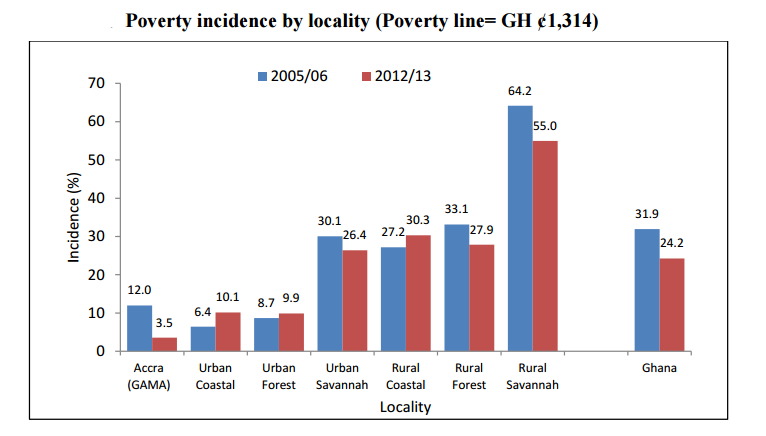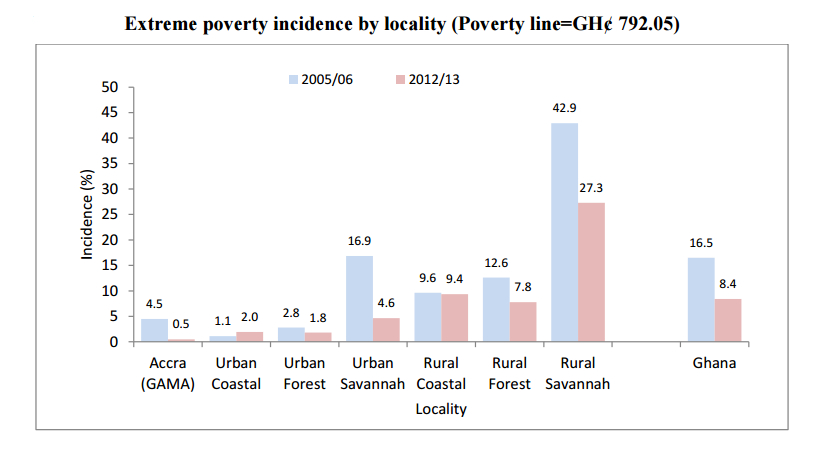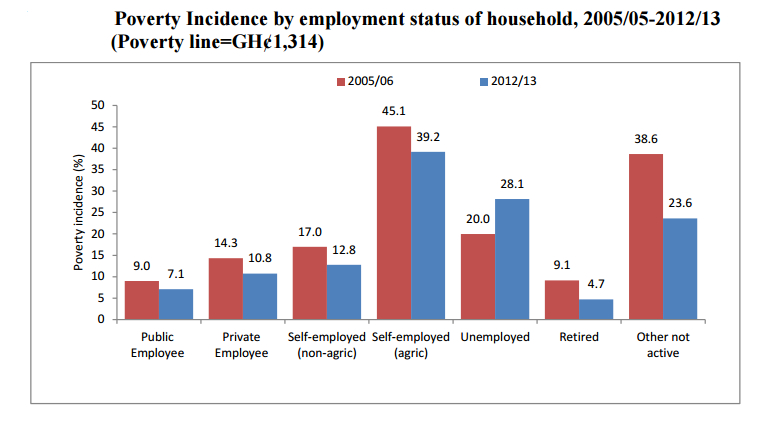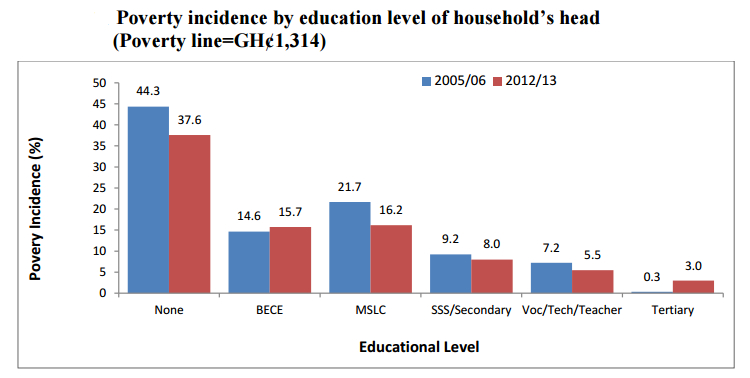Analyses of problem
Ghana is a country in Western Africa with 27 million inhabitants. The country is ranked 138th out of 187 countries in the 2014 Human Development Report. Although Ghana has developed the past decade, a quarter of the population still lives in poverty, see figure below. This poverty line is set at 0,86 euro a day, this the minimum for a calorie income of 2900 per adult and some non-food necessities.
It can be seen, that the wealth is distributed unfairly between the urban and rural areas. Looking at extreme poverty this gap grows even bigger, see beneath. Under this line of 0,52 euros income per day a person cannot provide the 2900 calorie income.
In Ghana Agriculture is the basis of the economy, accounting for more than one-third of the GDP and about 55% of employment. (WFP, 2015) As can be seen in the figure below, the self-employed farmers are far out the poorest population group.
The next figure shows the poverty distribution over different education levels, the uneducated are ten times more likely to live in poverty then Ghanaiana who went to university. There is a close correlation between the above and below figure, uneducated people are of course more likely to be farmers or unemployed.
Clearly to reduce poverty in Ghana, problems in the rural areas have to be tackled. Our project will bring modern greenhouse farming techniques for the tropics to Ghana. The greenhouse company should be an example enterprise which addresses two different target groups. The first are secondary or vocational schooled people with an entrepreneurial mindset. In our company they can learn all aspects of running their own greenhouse company. The second target group exists of school drop outs, from the age of 12 to 18. They will learn how to work in a greenhouse, with this practical education they can find a better job in the agricultural sector. The higher goal of this project is to bring about broad change in the agricultural sector. Farmers should become entrepreneurs with a plan for the future, this way they can increase their income and escape poverty.
Literature: World Food Programme Ghana, brief (01/01/2015-31/03/2015)
Graphs: Ghana living standard survey round 6, poverty profile Ghana (2005-2013), Ghana statistical service 2014




